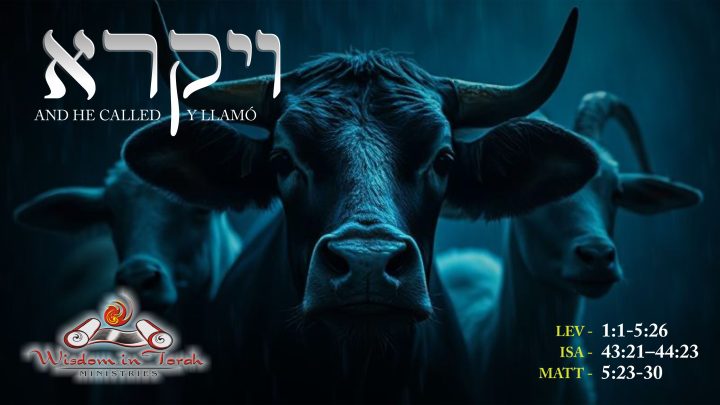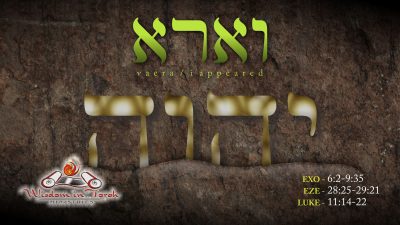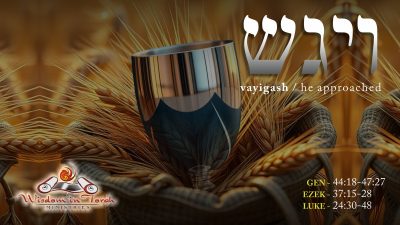
Don't Forget to Share!
This Parashah covers the instructions for the 5 types of daily sacrifices offered in the Temple.
This page includes Torah Portions from multiple years covered by Wisdom in Torah. Each year we covered the Torah from a different perspective so you can explore each Parashah from a different perspective and focus.
- 2010 Portions: Focus on Messianic connections in the Parashah
- ANET Portions: Focus on the ancient Near Eastern cultural context of the Parashah
- Mitzvot Portions: Focus on explaining and exploring the commandments found in the Parashah (in progress)
- 2015 Portions: Revisiting the Parashah looking at the ancient cultural context more in depth with additional areas that have been researched
- Brit Portions: Focus on connecting the Brit Hadashah (New Testament) to the Parashah
Oops, this is members-only content
This page requires at least a basic level membership to access the teaching.
Audio
Oops, this is members-only content
Resources
The following is a list of recommended resources for this teaching:
Categories
65 thoughts on “Torah Portion Vayikra Complete”
Leave a Comment
You must be logged in to post a comment.







Rico,
We have been discussing intentional and unintentional sin from the Torah portion, and I’d like to get your perspective. I have a couple of questions…
(1) As you mentioned in the lesson, the unintentional sins addressed by the chatat and asham sin offerings pertain to sins between men. I think my confusion comes from the use of the terms “intentional” and “unintentional.” It seems that some of the “unintentional” sins still indicate some degree of forethought (e.g., robbery, treachery). Is it more appropriate to think of these as sins against our fellow brother/sister (unintentional) as distinct from those of disobedience/defiance against YHVH (intentional)? What is the Hebrew word/phrase used in these verses? Is there greater meaning that can be derived from the original Hebrew? Perhaps the terms intentional and unintentional are just poor translations into English.
(2) In the 3rd temple in the millenium (Ezekiel’s temple), sacrifices are started again (Ezekiel 45:17). Sin offerings are listed. Since Yeshua shed His blood for the intentional sins (for which there was no animal sacrifice), is it correct to interpret these offerings as chatat and/or asham offerings for unintentional sin?
Shalom,
Craig
Could you tell me where you found the article on salt that you were reading? I’d really like to look into that a bit more. I’m especially interested in the medical implications for my mother (who was listening to you for the first time yesterday. She has sort of been drug into this movement by me (she had no place else to worship and started going to synagogue with me) and Adonai has been opening her eyes and spirit to His truth. Baruch Adonai!). We are wondering if this Himalayan salt might be a benefit for her. She has high blood pressure that is not well controlled and is insulin dependent. I can’t help but wonder if this could be Adonai working out a way to deliver her from these diseases (Deuteronomy 7:15).
Wauw! what can I say? Thank you! Thank you! Thank you!
Since the earthly sanctuary is a model of the heavenly, what equates in heaven with the sacrifices? And since Yeshua paid for the intentional rebellious sin, what about the unintentional sin or ignorant sin?
Thanks so much for your teaching. The threshold covenant just keeps getting bigger in the thematic connections, it is so significant for Pesach, I’m glad for your timing of the teaching.
Thank you Rico, for your passion for The Word and for all the hard work you put in to educate us about it and and the plan He has for us.
Regarding the salt, I found another essential substance that used to be in our food and is no longer there because of soil depletion; crystalline sulfur, also called MSM (not useful in its powdered and/or encapsuled form, though!), which raises the alkalinity in our bodies by promoting oxygen transport (from H2O!) across the cell membrane, thus fighting pretty much every illness and disease we deal with these days. I am pretty sure you would find looking into this stuff quite interesting. It is making a difference in my life!
I will definitely also change from table salt to sea salt. I had no idea! Again, thanks.
May Yah bless you and your family abundantly, Martina.
Wonderful teaching this week akhi! Todah for all the information!
Rico,
I was wondering a bit more about the kind of salt you are using. We were looking at the Himalayan salt, and there are different kinds such as pink and gray. What have you and Yolanda been using? and do you have a source you would recommend? Thanks so much!
Blessings,
Jocelin
Shabbat Shalom Jocelin!
We use both the Himalayan (pink) salt, and CELTIC Sea Salt (lt. gray). The Celtic SS contains no anti-caking or bleaching agents, as I’m the Himalayan as well. HTH!
Shalom,
Cindy S
I have never read Lev. before without falling asleep…until NOW!!! I am so glad, and blessed, that you are putting up these videos on the Torah because I’m kind of “new” to Hebraic studies and I would never have understood these teachings without you!!! May Yahweh continue to bless you in your ministry!
Wow, I so enjoyed this portion. Ty Rico for this teaching. My Himalayan salt crystals is on the way. Baruch atah YHWH. Thank you YHWH for teaching us and loving us.
Rico I’m praying for you & your trip to the NW. I cannot thank you enough for this portion of the the Torah. My, my, my what we don’t know, but thanks to you and your faithfulness to YHWH to teach. We have been eating French/Italian sea salt for years. We have it sent to us, straight from the sea. It is delicious. When I make the Challah Bread for Shabbat I sprinkle the salt on top. Sometimes I mix the salt and organic sugar. I’m going to look for a source for the Himalayan salt. Kudos to Victor also.
May YHWH continue to bless you/your lovely wife and family.
Szee41
Just to let you know… I noticed the ‘Nike’ symbol on your shirt about midway in the first video. Do you know this is the ‘wing’ for the Greek goddess of victory? I was in the Womens’ Army Corps in 1965 and me, the nice little Jewish girl (I didn’t know I was Jewish at that time because I had been adopted) marched and sang the song of Athena, the goddess of victory. Athena was connected to ‘Nike’. I also wore a likeness of Athena on my lapel. Oy vey!
Shalom
Thanks for the heads up on the Nike logo I guess I have to get rid of it now.
Shalom
I am only studying the first part of Vayikra but am interested in how we would today present an offering. For example, I have recovered from an illness. How would I bring a shalomim or peace offering?
Shalom
due to the fact that there is no temple we can not bring an offering but another thing that you can do is to bring a offering to the feast of Yah as a free will offering and donated to any torah keeping organization you prefer.
shalom
RICO